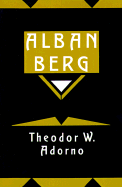The works
Published online by Cambridge University Press: 03 May 2011
Summary
Analysis and Berg
Berg was well disposed toward analysis. His characteristically painstaking analyses of Schoenberg's works, of Gurrelieder, Pelleas und Melisande, and the First Chamber Symphony, were completed as a young man. Though published, they are not nearly as well known as they deserve to be; in particular the analysis of the Chamber Symphony, a work that remains difficult even today, can be considered exemplary; a collected edition would be well worthwhile. His essay on Schoenberg's D minor Quartet opened perspectives for an entire book on that work, one that unfortunately remained unwritten; in addition to all its other merits, the analysis of “Träumerei” applies very profitably the experience of the Schoenberg School's motivic-variational thinking to a work of traditional music. It is one of the few texts which answers conclusively or, to use one of Berg's favorite words, “unconditionally” [verbindlich], the question as to why a particular work of art can with reason be called beautiful. The Schoenberg School's concept of the objective quality and objective criteria of something composed is in accordance with the fact that, strengthened by their own self-critical exertion, they do not surrender musical judgment to the kind of emotion that is often nothing more than a dull mixture of reactions inappropriate to the object itself. In a compositional process in reverse, as it were, beginning with the end product, it is necessary to determine the objective properties of a composition's quality by immersing oneself in the work as a whole and its microstructure.
- Type
- Chapter
- Information
- Alban BergMaster of the Smallest Link, pp. 35 - 135Publisher: Cambridge University PressPrint publication year: 1991



